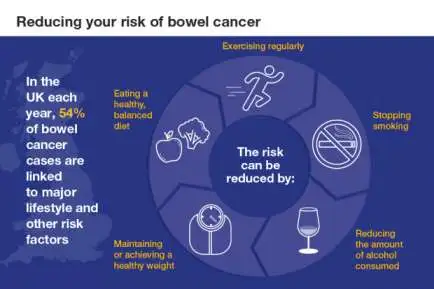
For those with metabolic syndrome, the necessary lifestyle and weight changes can be challenging. Now, a study has shown that eating within a certain time window can help tackle that.

Metabolic syndrome is an umbrella term for a number of risk factors for serious conditions, such as diabetes, heart disease, and stroke. These risk factors include obesity and high blood pressure, among others.
This is no small issue in the United States, where one-third of adults have metabolic syndrome. In fact, the condition affects around 50% of people aged 60 and over.
Obesity is also prevalent, affecting around 39.8% of adults in the U.S. Obesity is closely linked to metabolic syndrome.
Receiving a diagnosis of metabolic syndrome offers a critical window of opportunity for making committed lifestyle changes before conditions such as diabetes set in.
However, making the necessary long-term lifestyle changes to improve one’s health outlook is not always easy. Such changes include losing weight, managing stress, being as active as possible, and quitting smoking.
For the first time, a new study has looked into time-restricted eating, or intermittent fasting, as a means of losing weight and managing blood sugar and blood pressure for people with metabolic syndrome.
This new study, which appears in the journal Cell Metabolism, is set apart from previous studies that looked at the health and weight loss benefits of time-restricted eating in mice and healthy people.
“[People] who have metabolic syndrome/prediabetes are often told to make lifestyle interventions to prevent progression of their risk factors to […] disease,” said co-corresponding study author Dr. Pam Taub, of the University of California San Diego School of Medicine.
“These [people] are at a crucial tipping point, where their disease process can be reversed.”
“However, many of these lifestyle changes are difficult to make. We saw there was an unmet need in [people] with metabolic syndrome to come up with lifestyle strategies that could be easily implemented.”
Clinical testing of time-restricted eating
Armed with the knowledge that time-restricted eating and intermittent fasting had been effective in treating and reversing metabolic syndrome in mice, the researchers set out to test these findings in a clinical setting.
“There are a lot of claims in the lay press about promising lifestyle strategies that have no data to back up the claims. We wanted to study [time-restricted eating] in a rigorous, well-designed clinical trial,” said Dr. Taub.
Participants could eat what they wanted, when they wanted, within 10-hour windows.
The good news for the 19 participants with metabolic syndrome was that they could decide how much to eat and when they ate, as long as they restricted their eating to a window of 10 hours or less.
A 10-hour window had been effective with mice, and it offered people enough leeway that would be easy to comply with long-term.
“The participants in the study had control of their eating window,” said Dr. Taub. “They could determine which 10-hour period they wanted to consume calories. They also had flexibility in adjusting their eating window by a couple [of] hours based on their schedule.”
“Overall, participants felt they could adhere to this eating window. We did not restrict how many calories they consumed during their eating window,” Dr. Taub told Medical News Today.
Most of the participants had obesity, and 84% were taking at least one medication, such as an antihypertensive drug or a statin.
Metabolic syndrome is associated with at least three of the following: high blood pressure, high fasting blood sugar, high triglyceride (body fat) levels, low high-density lipoprotein, or “good,” cholesterol, and abdominal obesity.
Weight loss and better sleep
“As they started to adhere to this eating window, they started feeling better with more energy and better sleep, and this was positive reinforcement for them to continue with this 10-hour eating window,” said Dr. Taub.
Almost all the participants ate breakfast later (around 2 hours after waking) and dinner earlier (around 3 hours before bed).
The study lasted for 3 months, during which time the participants showed a 3% weight and body mass index (BMI) reduction, on average, and a 3% loss of abdominal, or visceral, fat.
“All of these improvements reduce their risk of cardiovascular disease,” said Dr. Taub.
Also, many participants showed a reduction in blood pressure and cholesterol, as well as improvements in fasting glucose. They also reported having more energy, and 70% reported an increase in the amount of time they slept or experienced sleep satisfaction.
The participants said that the plan was easier to follow than counting calories or exercising, and more than two-thirds kept it up for around a year after the study ended.
Dr. Taub recommends that anyone interested in trying time-restricted eating speak to their healthcare provider first, especially if they have metabolic syndrome and are taking medication, as weight loss may mean that medications require adjustment.
Related Post
 14
14 Aug
7 Essential Healthy Habits to Instill in Your Kids in 2024
In the high-speed universe of 2024, raising solid and balanced kids requires a blend of shrewd nurturing and adjusting to the most recent patterns. As guardians, it's critical to instill propensities that cultivate both physical and mental prosperity in our.
Read More 29
29 Jul
Which Symptom Indicates That Someone May Need Mental Health Treatment?
Today! In this article!, you can find the best treatment for mental health. Which symptom indicates that someone may need mental health treatment? Perceive the indications of requiring emotional well-being treatment and assume responsibility for your prosperity. Try not to hold.
Read More 08
08 Jul
What Is Self-Management of Chronic Disease?
Diabetes, joint inflammation, hypertension, lung illness, corpulence and other persistent sicknesses can make life challenging to oversee for a great many more seasoned grown-ups, frequently compelling them to surrender their freedom. The Challenges of Chronic Disease More established grown-ups are lopsidedly impacted.
Read More 01
01 Jul
7 Lifestyle Tips to Reduce Your Cancer Risk
How in all actuality do individuals bring down the possibilities getting malignant growth? There's a lot of exhortation. Yet, on occasion, guidance from one review conflicts with the exhortation from another. Disease avoidance data keeps on creating. In any case,.
Read More